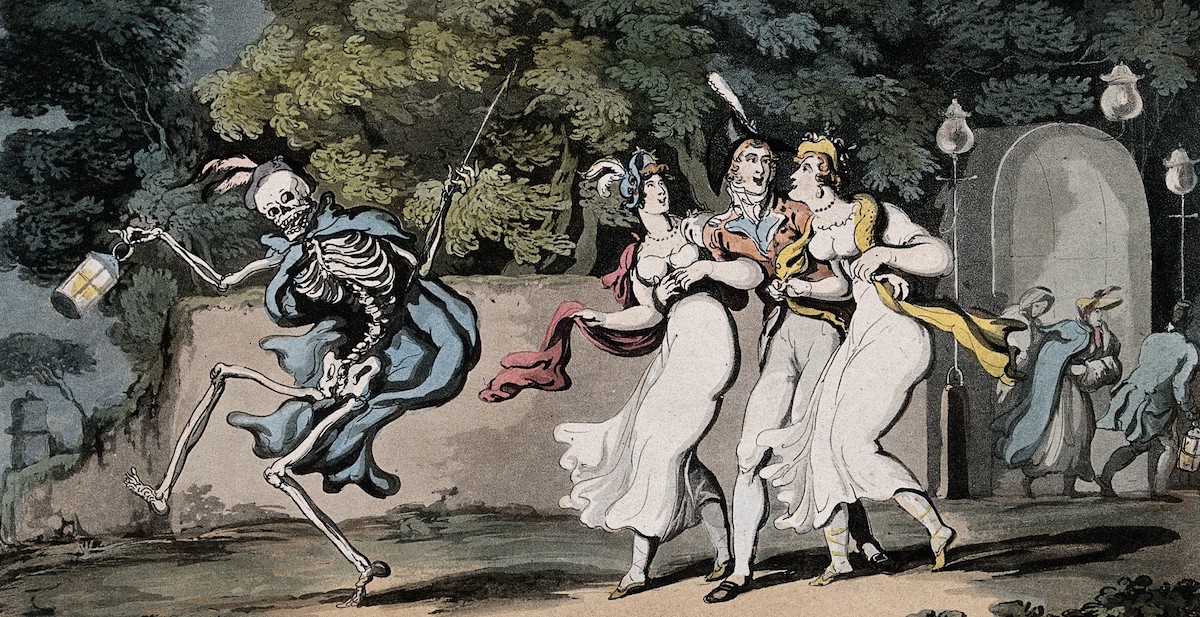
A couple of weeks ago I mentioned in a comment that I had two virus story ideas I didn’t know what to do with. This prompted a reply from Carl Reed to say that he’d withdrawn his poem Pandemic from an upcoming collection, “fearing accusations of tastelessness and/or vulgar opportunism.” I applauded Carl’s decision, adding that if my stories were finished, I certainly wouldn’t release them now.
But such concerns won’t stop many from writing about pandemics. Confinement has already led to a steep rise in submissions to literary agents, and agent John Jarrold, who specialises in science fiction and fantasy, expects apocalypse scenarios to feature prominently. Phoebe Morgan of Harper Collins cautions against it: “I am advising my authors not to add pandemic into contemporary novels. My reasoning: I don’t think anyone wants to remember this when they’re trying to escape. Fiction is fiction.” The concern there appears to be more commercial than ethical, and she may not be right anyway: the film Contagion, for example, has seen a surge in popularity. Either way, a glut of books on the same theme is likely to be counterproductive, and it will be some time before the better ones get to stand out from the dross.
I have no intention of moving my stories further up my list of priorities, but I have been noting a few references about the current situation which may be useful if and when I do tackle them. I’d already done a hefty amount of research into the science, so most of these articles relate instead to human behaviour – which is what in the end matters most in a story. What we’re seeing now is real life examples of such behaviour in action, and I must admit that as a writer, it’s the morally repugnant behaviour that fascinates me most. Stealing face masks, internet scams, deliberately coughing over people, slashing ambulance tyres – on one level I simply shake my head in disbelief and despair, on another I’m intrigued by the psychology behind it.
There’s nothing new here. Albert Camus explored these issues in The Plague, published in 1947, in which the disease itself acts as a metaphor for the pestilence of the Nazi occupation of Europe. Camus describes a wide range of behaviour, from the selfish to the stoically resistant. While the book is concerned with moral choices, he avoids excessive condemnation or praise: the selfish aren’t decried as despicable, nor is Dr. Rieux, the book’s main protagonist, extolled as heroic. While one behaviour is to be preferred, and eventually prevails, both are understandable reactions to the absurdity of the human condition which the plague merely throws into sharp relief.
One reason I undertook a pandemic story was my annoyance at The Walking Dead. Yes, it was packed with suspense (though even that was wearing thin by episode 972), but I found its depiction of human behaviour shallow and Manichean. With its unrelenting message that man is a wolf to man, it was some way off the subtlety displayed by the likes of Camus. But then I guess that consideration of political and ethical choices doesn’t have viewers gripping the edge of the seat quite as well as a horde of zombies. It’s those very choices, though, which I’d like one day to explore.
To end on a more practical note, Kevin Brennan wonders how you deal with this pandemic in any book purportedly set in the present. With the normal world upended, how do you handle that if your novel takes place this year or next? My current WIP is set in 2018, so I’m not facing that issue – but perhaps some of you are? It remains to be seen if the world will durably change when we emerge from this, and if so, how. Right now, what a novel set in ‘the present’ will look like is anybody’s guess.